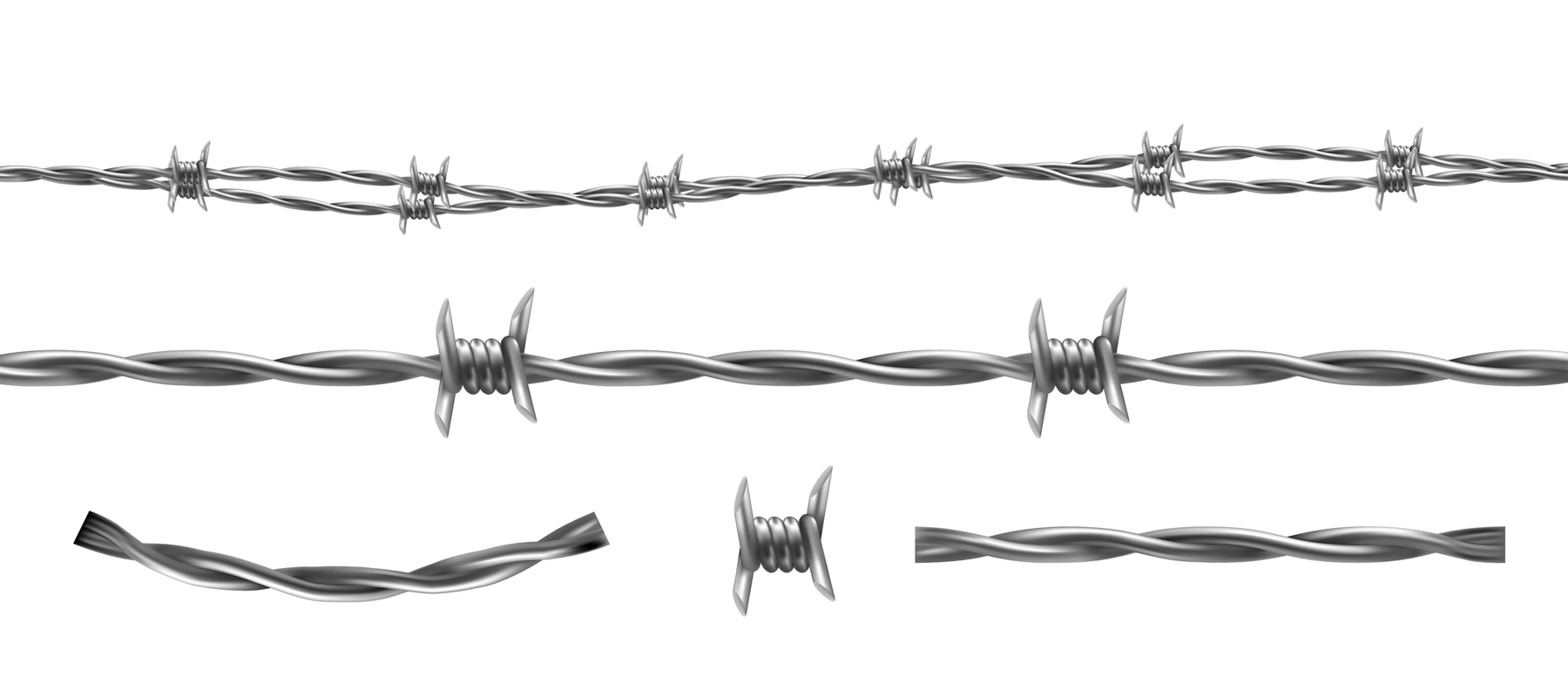Wire Fencing Cost: A Comparison of Materials and Options
Last Updated: January 23, 2023

Fact Checked By: Ryan Maguire
On This Page
Whether you want to create a boundary around a simple backyard garden or a hundred acre ranch, wire fencing is a good choice due to its affordability and utility. There are many kinds of wire fences, and each is best-suited to certain projects. This buying guide provides the lowdown on the different types of wire fencing and explains how much you can expect to pay for each.
Types of Wire Fencing #
The following varieties of wire fencing are among the most common:
- Woven Wire: Woven wire fencing is sold in rolls and made from vertical and horizontal wires that form rectangular gaps. It is a good choice for creating an enclosure for cattle, sheep, horses, game, and other animals. Electric or barbed wires can be added to the top or bottom of a woven wire fence for improved performance. In addition to being effective for livestock fencing, woven wire also makes a good garden fence.
- High-Tensile Wire: Consisting of anywhere from four to ten strands of wire stretched between wood or metal posts, a high tensile wire fence is extremely versatile and secure. Like woven wire fence, it is good for restraining cattle, horses, goats, sheep, and other livestock, but with its strength and flexibility high tensile wire provides superior protection. Electric wires can be used for added security.
- Chicken Wire: Although a chicken wire fence is most often used to confine and protect poultry, this strong, durable, and flexible fencing material can additionally be used to keep mice, rabbits, squirrels, and other animals out of gardens and to reinforce concrete.
- Barbed Wire: Strands of barbed wire strung between posts (usually 4-7 strands depending on the animal(s) makes for an effective livestock fence, while barbed wire (typically 3 or 6 strands) added to the top of a home fence provides an extra layer of security.
- Chain Link: Strong, lightweight, and inexpensive chain link fence creates an effective boundary marker between properties, keeps your pets in and neighborhood pets out, and can also provide security, especially when topped with strands of barbed wire.
Wire Fencing Average Costs #
General factors affecting the cost of wire fencing include local material and labor costs and the complexity of the installation. Specifically, wire fencing costs are determined by the number of strands and whether or not the wire is:
- High tensile
- Barbed
- Electrified
- Galvanized
For the most accurate wire fencing prices, fill out the form provided to receive free estimates from prescreened fencing contractors in your area.
- Woven wire fence costs approximately $2 to $4 per foot installed.
- Non-electric high tensile wire fence costs around $1 to $4 per foot installed; the cost to install electric wire fence is around $.50 to $3.50 per foot.
- Chicken wire installation costs roughly $.50 to $3.50 per foot.
- The cost of barbed wire fence is around $1 to $3 per foot installed.
- A chain link fence costs approximately $10 to $25 per foot to install.
